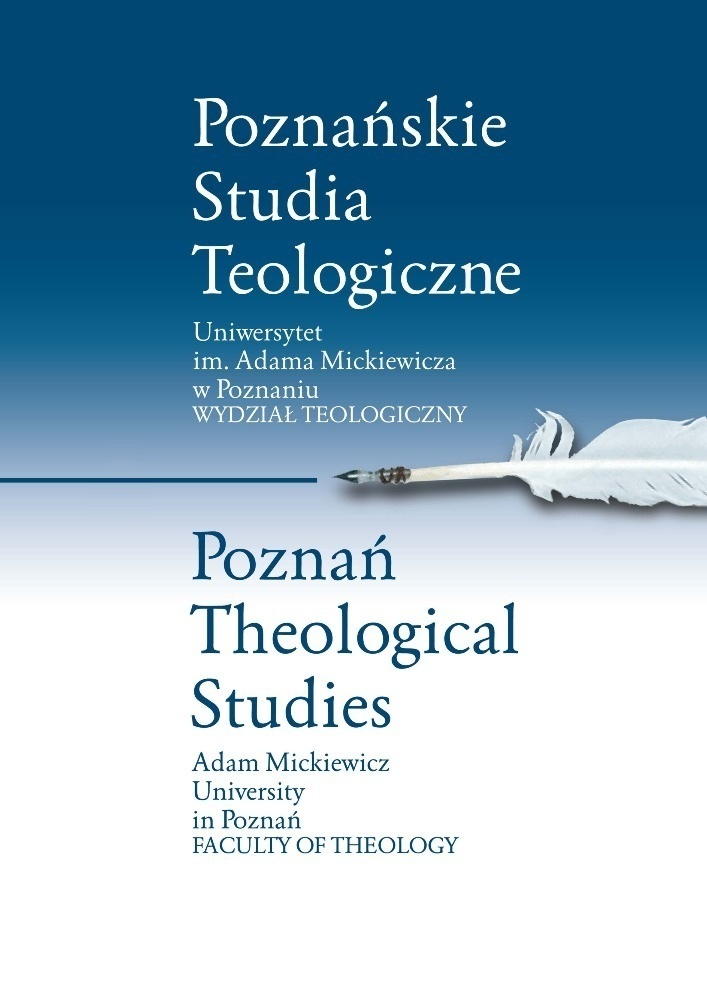Abstract
The presence of theology in the academic community is today a challenge of particular significance. One of the most important reasons are political transformations in the post-communist countries of Europe in the last 25 years, as well as ideological and axiological transformations in the West of our continent. All these processes have affected many spheres of social, cultural and spiritual life and are directly related to shaping the contemporary theological thought. Although theology acquires potentially new opportunities for development and impact in the university space, in practice there are increasing difficulties in its affirmation. The problem primarily concerns the scientific profile of theology and the responsibility of theologians themselves.
Literaturhinweise
Anderwald A., Teolog a scientific community. Wzajemne odniesienia, przyczyny, w: Ja–Wspólnota. Perspektywa teologii fundamentalnej, red. E. Kotkowska, J. Moskałyk, Poznań 2009, s. 131–149.
Benedykt XVI, Wiara, rozum i uniwersytet, w: Islam a chrześcijaństwo. Konfrontacja czy dialog?, opr. P. Słabek, Kraków 2006, s. 17–32.
Bernhard R., Ende des Dialogs? Die Begegnung der Religionen und ihre theologischen Reflexion, Zürich 2005.
Kałuża K., Czy teologia komparatywna zastąpi teologię religii? „Studia Oecumenica” 16 (2016), s. 319–358.
Klausnitzer W., „Nostra Aetate“ als Ausgangpunkt einer Theologie der Religionen, „Roczniki Teologii Fundamentalnej i Religiologii” 5 (2013) 60, s. 99–115.
Kongregacja Nauki Wiary, Instrukcja o powołaniu teologa w Kościele „Dominum Veritatis”, w: W trosce o pełnię wiary. Dokumenty Kongregacji Nauki Wiary 1966–1994, red. i tłum. J. Królikowski, Z. Zimowski, Tarnów 2010, s. 425–445.
Lüke U., Theologie und Frömmigkeit — Gedanken über eine schwierige Beziehung, „Theologie und Glaube” 90 (2000), s. 239–250.
Międzynarodowa Komisja Teologiczna, Teologia dzisiaj. Perspektywy, zasady i kryteria (2012), tłum. K. Stopa, Kraków 2012.
Myszor W., Teologia akademicka: Jej granice i ograniczenia, „Śląskie Studia Historyczno- Teologiczne” 43 (2010), s. 141–150.
Nossol A., Znaczenie ekumenizmu dla wychowania w sytuacji pluralizmu światopoglądowego i religijnego, „Paedagogia Christiana” 8 (2001) 2, s. 29–34.
Olszewski M., Teologia jako nauka według Tomasza z Akwinu jak też o pożytkach płynących z czytania średniowiecznych tomistów, w: Teologia św. Tomasza z Akwinu dzisiaj, red. B. Kochaniewicz, Poznań 2010, s. 137–150.
Ratzinger J., Prawda w teologii, tłum. M. Mijalska, Kraków 2001.
Roszak P., Dwie prędkości teologii? O celu, metodzie i perspektywach teologii analitycznej, „Teologia w Polsce” 9 (2015) 2, s. 75–93.
Rychlicki C., Miejsce i rola teologii w formacji chrześcijańskiej, „Teologia i człowiek” 1 (2003), s. 105–122.
Lizenz
© 2019 Uniwersytet im. Adama Mickiewicza w Poznaniu, Wydawnictwo Naukowe UAM, Poznań
OPEN ACCESS

